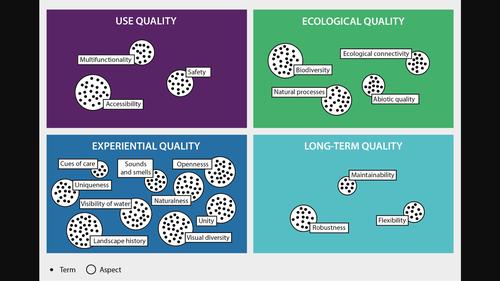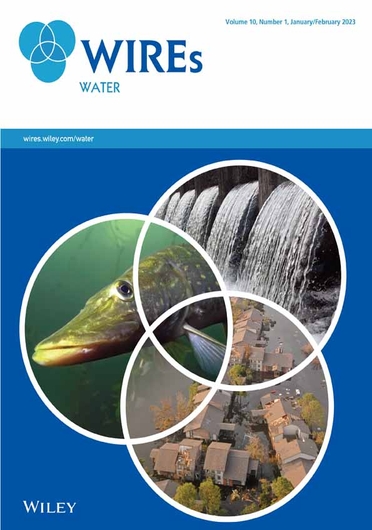超越景观体验:洪水风险管理中空间质量概念的系统文献综述
IF 5.8
1区 地球科学
Q1 ENVIRONMENTAL SCIENCES
引用次数: 0
摘要
人们常常基于对“空间质量”(SQ)的担忧而反对实施防洪措施。SQ可以是一个模糊的概念,它可以作为边界对象,将来自不同背景的利益相关者联系在一起。然而,SQ的模糊性也可能被误用来为特定利益辩护,导致预期未达到,并导致沟通不畅。为了促进对洪水风险管理项目中SQ的理解、沟通和实施,本研究系统地回顾了文献中SQ的使用。本综述的第一部分确定了19个方面,分为四个维度:体验、使用、生态和长期质量。基于这些维度,我们在本综述的第二部分中发现,SQ可以理解为(1)体验质量,(2)体验质量、使用质量和生态质量的结合,以及(3)所有四个维度的结合。回顾表明,对SQ的理解与几个语境特征有关,包括作者所属的国家和关于客观性和主观性的突出思想流派。例如,只有隶属于荷兰机构的作者才会考虑到SQ的所有四个维度。为了在这些对SQ的不同理解之间架起桥梁,本研究提供了一个框架,其中包含一组术语,可用于开发SQ的共享语言,最终促进这一概念在洪水风险管理项目中的实施。本文章由计算机程序翻译,如有差异,请以英文原文为准。

Beyond landscape experience: A systematic literature review on the concept of spatial quality in flood‐risk management
People often oppose the implementation of flood mitigation measures based on concerns about “spatial quality” (SQ). SQ can be an ambiguous concept, which can function as boundary object that unites stakeholders from various backgrounds. Yet, the ambiguity of SQ can also be misused to justify particular interests, result in unmet expectations and lead to miscommunication. To contribute to the understanding, communication and implementation of SQ in flood risk management projects, this study systematically reviewed the use of SQ in the literature. The first part of this review resulted in the identification of 19 aspects categorized into four dimensions of SQ: experiential, use, ecological, and long‐term quality. Based on these dimensions, we found in the second part of this review that SQ is understood either as (1) experiential quality only, (2) the combination of experiential, use, and ecological quality, and (3) the combination of all four dimensions. The review illustrates that the understanding of SQ is related to several context characteristics, including the country of author affiliation and the prominent school of thought with regards to objectivity and subjectivity. For example, only authors affiliated with Dutch institutions take into account all four dimensions of SQ. To bridge between these different understandings of SQ, this study provides a framework with a set of terms that can be used for the development of a shared language for SQ, ultimately fostering the implementation of this concept in flood risk management projects.
求助全文
通过发布文献求助,成功后即可免费获取论文全文。
去求助
来源期刊

Wiley Interdisciplinary Reviews: Water
Environmental Science-Ecology
CiteScore
16.60
自引率
3.70%
发文量
56
期刊介绍:
The WIREs series is truly unique, blending the best aspects of encyclopedic reference works and review journals into a dynamic online format. These remarkable resources foster a research culture that transcends disciplinary boundaries, all while upholding the utmost scientific and presentation excellence. However, they go beyond traditional publications and are, in essence, ever-evolving databases of the latest cutting-edge reviews.
 求助内容:
求助内容: 应助结果提醒方式:
应助结果提醒方式:


